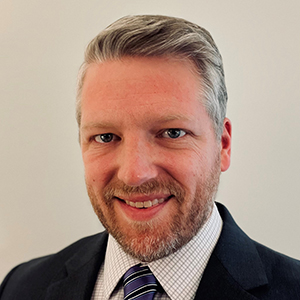 The industry event anyone in secured finance attends now celebrates its 77th year. SFNet is set to make the Arizona convention a memorable one. Click below to register.
The industry event anyone in secured finance attends now celebrates its 77th year. SFNet is set to make the Arizona convention a memorable one. Click below to register.

William Patton
Vice President, Portfolio Manager, U.S. Bank Asset Based Finance
William Patton is vice president, portfolio manager for U.S. Bank’s Asset Based Finance division. Based in Milwaukee, WI, William is responsible for managing a portfolio of agented and bought participation asset-based transactions in the middle market and large corporate space. William has experience working with companies in the metals, oil and gas, food, retail, automotive, sporting goods, homebuilding products, wholesale distribution, and specialty services industries. Before joining U.S. Bank in 2011, William spent five years with GE Capital, primarily focused on performing collateral due diligence for existing customers and new business prospects for the Corporate Lending and Sponsor Finance businesses.
William earned his Bachelor of Business Administration in finance and real estate from the University of Wisconsin – Madison in 2005. He lives in the Milwaukee area with his wife (Mollie), son (Brandt – 6), and daughter (August – 4). In his free time, William enjoys traveling with his family and golfing.
How do you define a good leader?
A good leader is an open and honest communicator and demonstrates the utmost integrity in everything they do. This effective communication and high level of integrity allows them to earn the trust of everyone around them, both inside and outside their organization. A good leader also demonstrates a sincere enthusiasm for their organization and their team and creates a clear vision for the future that motivates those around them to work toward common goals.
What is the best professional advice you have been given and how have you implemented it?
I have been fortunate to have many great mentors throughout my career who have provided countless pieces of advice along the way. The best advice I have been given by all of them is to step outside of my comfort zone. For me, this included taking on challenging assignments as well as seeking out opportunities to take on additional responsibilities. These experiences have provided me the opportunity to differentiate myself, directly engage with senior management, and connect with others across my organization.
What advice do you normally give to the junior talent you mentor?
I give the following advice to junior talent:
Ask questions, no matter how trivial you think the questions might be. Leverage the expertise of those you work closely with as well as those throughout your organization. While it is important to ask questions early on in your career, remember that it is equally important to continue asking questions as your career advances.
Don’t be afraid to think outside the box. This could be anything from identifying opportunities to improve the efficiency of an internal process to coming up with a creative solution to meet the needs of a customer request. It is these ideas that could differentiate you and/or your organization from others.
Always be yourself. There is no single personality or style that is best, and most people tend to perform at their highest potential when they feel free to be themselves. Don’t feel pressured to be someone you are not.
With many working remotely or hybrid-style the past few years, what are some work-life balance strategies you’ve stuck with?
At the beginning of the pandemic, my wife and I shifted to working from home and our two young children (ages 4 and 2 at the time) were both home with us too. This “new normal” certainly had its challenges, but being very well organized, prioritizing my to-do list, and having the ability to multi-task allowed me to succeed during this time. It was very easy to fall into the pattern of being available 24/7, and many of us felt the need to be early on. It was important for me to set clear boundaries and not feel obligated to read and respond to emails right away, specifically outside of normal working hours. I made sure to take time every day to unplug and recharge, such as a 30-minute break to have lunch or blocking off a few hours every night to spend time with my family and friends. At the end of the day, it is just as important to prioritize your personal life as it is your professional life.
77th Annual Convention
 The industry event anyone in secured finance attends now celebrates its 77th year. SFNet is set to make the Arizona convention a memorable one. Click below to register.
The industry event anyone in secured finance attends now celebrates its 77th year. SFNet is set to make the Arizona convention a memorable one. Click below to register.
